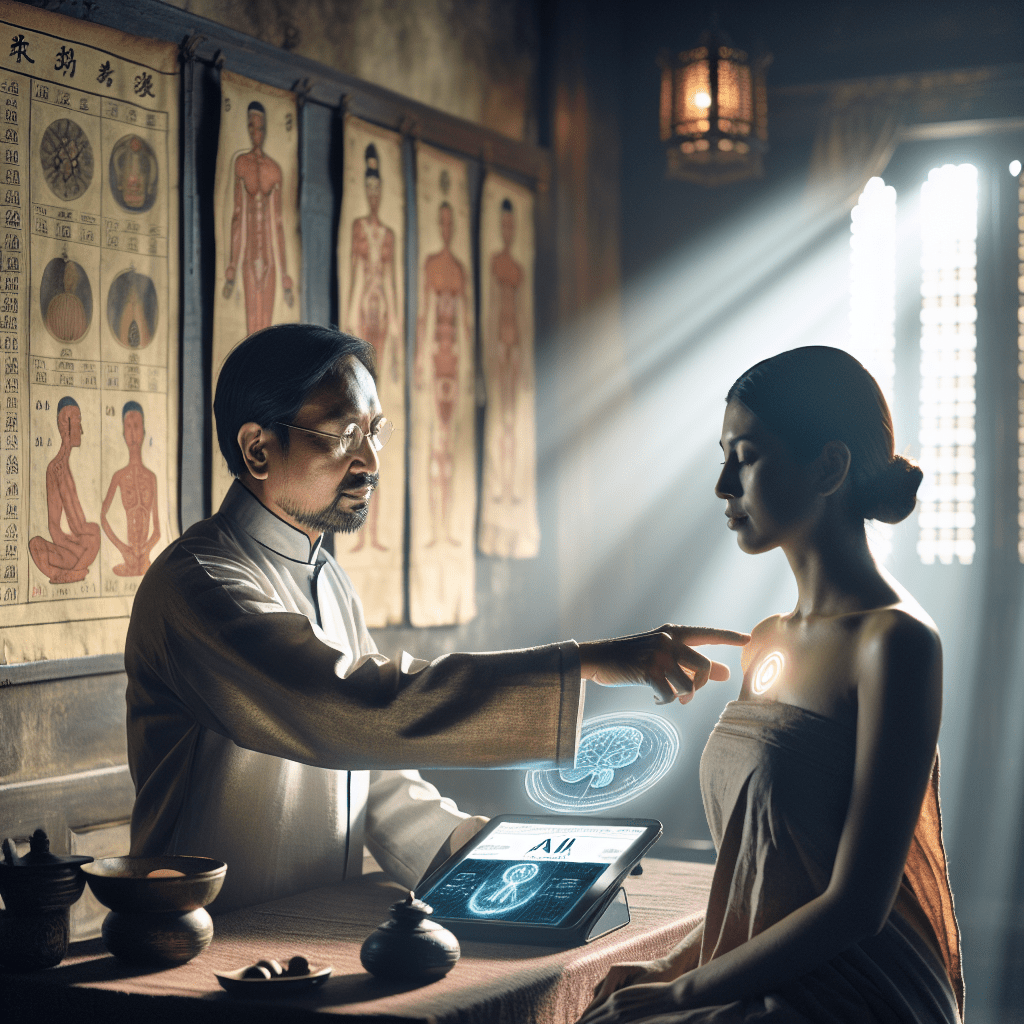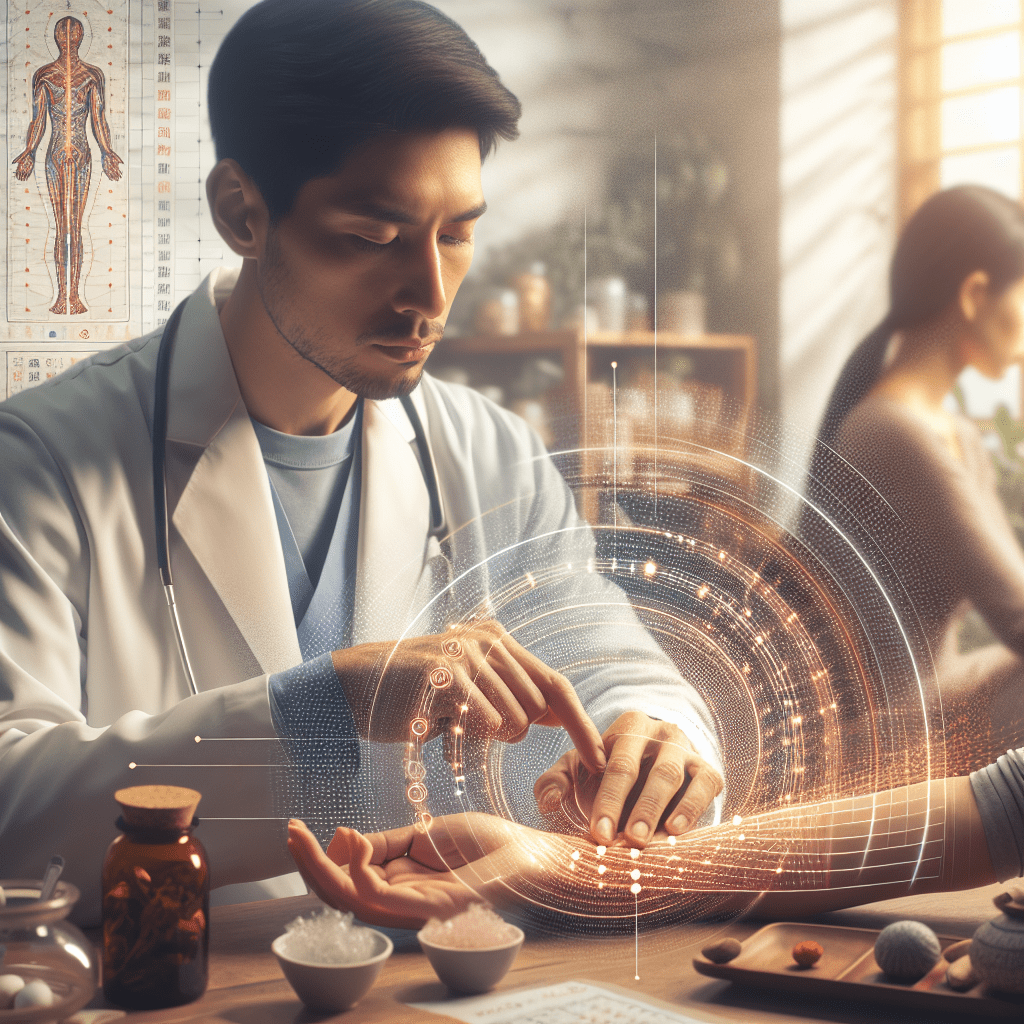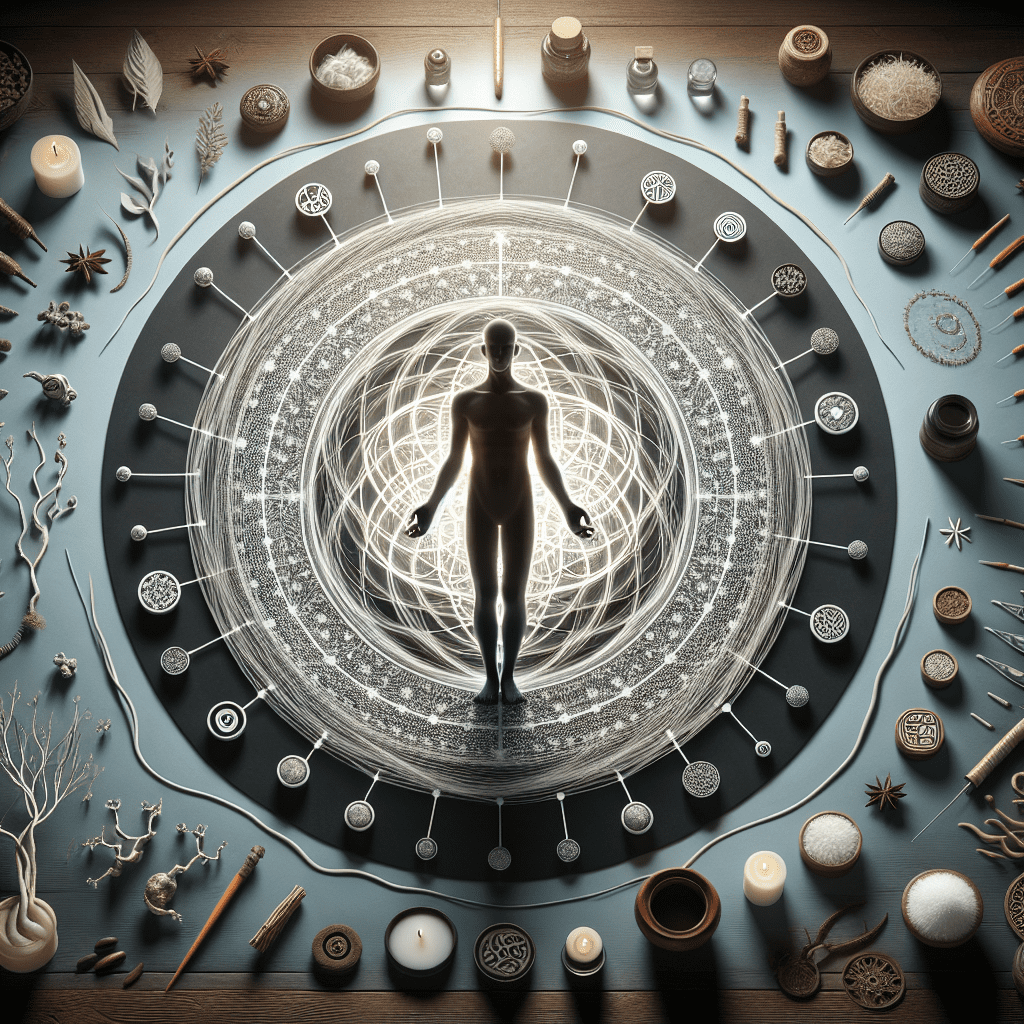In a world where cutting-edge technology shapes our daily lives, an unexpected partnership is blooming between artificial intelligence and Traditional Chinese Medicine (TCM). This fascinating blend of ancient wisdom and modern innovation is creating new pathways for holistic health and personalized wellness solutions. As health-conscious individuals increasingly seek natural approaches to wellbeing, the integration of AI into TCM practices offers a promising bridge between Eastern healing traditions and Western technological advancement.
The roots of TCM stretch back over 2,000 years, encompassing herbal remedies, acupuncture, dietary therapy, and mind-body practices that view health through a holistic lens. Meanwhile, AI represents the pinnacle of modern scientific achievement. Though seemingly worlds apart, these two approaches share a common goal: promoting human health and wellbeing through personalized care. This thoughtful integration of AI into TCM is providing more innovative ways to treat patients, improve outcomes, and create culturally responsive healing experiences.
Enhancing Diagnostic Accuracy and Treatment Personalization
One of the most significant contributions of AI to TCM lies in its ability to enhance diagnostic accuracy. Traditional diagnosis in TCM relies heavily on the practitioner’s skills in the “four examinations” – inspection, auscultation-olfaction, inquiry, and palpation. These methods, while powerful, can vary between practitioners based on their experience and expertise.
AI systems are now being developed to analyze these complex diagnostic patterns with remarkable precision. For example, machine learning algorithms can process tongue and pulse data – two crucial diagnostic methods in TCM – to identify patterns that might be missed by human observation alone. These systems learn from thousands of clinical cases, effectively mimicking the expertise of seasoned TCM practitioners while providing consistent results.
A recent study demonstrated that AI-assisted TCM diagnosis achieved an accuracy rate of 87% in syndrome differentiation, surpassing the average rate of 72% among mid-level practitioners. This improved diagnostic accuracy directly translates to better treatment outcomes for patients seeking natural health solutions.
Beyond diagnosis, AI excels at treatment personalization – a cornerstone of TCM philosophy. By analyzing individual health data, genetic information, and lifestyle factors, AI can recommend customized herbal formulas and treatment plans that align with a patient’s unique constitution. This marriage of ancient wisdom and modern technology creates truly personalized medicine, addressing the root causes of health issues rather than merely treating symptoms.
As one TCM expert notes, “AI doesn’t replace the practitioner’s intuition and experience; rather, it enhances our ability to create precise, personalized treatment protocols by processing vast amounts of clinical data that would be impossible for any single practitioner to analyze.“
Key Applications of AI in TCM Practice
The implementation of AI in TCM extends across several key areas, transforming traditional practices while honoring their fundamental principles.
Disease Diagnosis and Pattern Recognition
AI systems excel at recognizing patterns in complex data, making them ideal for TCM syndrome differentiation. The top three most promising applications in this area include intelligent syndrome differentiation systems (46.9%), TCM four diagnostic instruments (39.9%), and pattern recognition tools that analyze tongue and pulse data with unprecedented accuracy.
These AI tools can detect subtle relationships between symptoms that might indicate specific imbalances according to TCM theory. For instance, deep learning algorithms can analyze tongue images to identify patterns associated with liver qi stagnation or spleen qi deficiency, providing objective measurements for traditionally subjective assessments.
Preventive Care and Health Monitoring
Prevention stands at the heart of TCM philosophy, and AI enhances this approach through predictive modeling. By analyzing lifestyle data, environmental factors, and constitutional tendencies, AI systems can forecast potential health issues before they manifest as symptoms.
One innovative application involves monitoring seasonal transitions – periods when the body is particularly vulnerable according to TCM theory. AI systems can provide personalized recommendations for dietary adjustments, herbal supplements, and lifestyle modifications based on a person’s constitutional type and the changing seasons, embodying the TCM principle of living in harmony with nature.
Herbal Medicine Quality Assessment and Formulation
The quality and authenticity of herbal medicines are crucial for effective TCM treatment. AI technology now plays a vital role in ensuring the safety and efficacy of herbal preparations.
Machine learning algorithms can analyze the chemical composition of herbs, identifying active compounds and potential adulterants with remarkable accuracy. This technology helps ensure that patients receive genuine, high-quality medicinal herbs rather than substitutes or contaminated products.
Additionally, AI assists in creating optimized herbal formulas by analyzing the complex interactions between different herbs. As discussed in research on AI applications in TCM target prediction, these technologies are advancing our understanding of herbal medicine mechanisms through multi-omics techniques and specialized databases. Traditional formulas often contain multiple herbs that work synergistically, and AI can identify the most effective combinations based on a patient’s specific condition. As one researcher explains, “AI can process thousands of potential herb combinations and predict their therapeutic effects, allowing for truly personalized formula development that would be impossible through traditional methods alone.“
Global Collaboration and Knowledge Sharing
AI is breaking down geographical barriers in TCM practice, fostering unprecedented collaboration among practitioners worldwide. Cloud-based platforms equipped with AI capabilities allow TCM experts to share knowledge, discuss complex cases, and collectively refine diagnostic and treatment approaches.
This global perspective is particularly valuable for expanding TCM’s reach. AI translation tools help overcome language barriers, making Eastern medical knowledge accessible to Western practitioners and patients. Meanwhile, TCM wisdom enriches AI development by providing alternative frameworks for understanding health and disease.
The cross-cultural exchange facilitated by AI has led to innovative applications in several areas:
Personalized Medicine Development
By analyzing the effectiveness of TCM treatments across diverse populations, AI helps identify which approaches work best for specific genetic and constitutional types. This data informs the development of personalized medicine protocols that integrate Eastern and Western approaches.
Drug Discovery and Herbal Research
AI accelerates the discovery of new therapeutic compounds in traditional herbs by predicting their biological activities and potential applications. A recent breakthrough identified three compounds in a traditional formula that show promise for treating inflammatory conditions, demonstrating how AI can unlock the potential of ancient remedies for modern health challenges.
Biodiversity Conservation
As demand for medicinal herbs grows, AI helps monitor wild plant populations and identify sustainable harvesting practices. This technology supports the preservation of botanical resources that are essential to TCM, ensuring their availability for future generations.
Future Prospects: The Evolution of AI in TCM
The partnership between AI and TCM stands at the threshold of a new era in integrative healthcare. As technology continues to advance, we can expect even more sophisticated applications that honor traditional wisdom while embracing innovation.
Several trends are likely to shape this evolution:
Wearable technology will increasingly collect real-time data on bodily functions relevant to TCM diagnosis, such as pulse qualities and circadian rhythms.
Virtual reality platforms may offer immersive learning environments for TCM students, allowing them to practice diagnostic skills with AI-generated patient scenarios.
Blockchain technology could ensure the authenticity and traceability of herbal medicines throughout the supply chain.
AI-enhanced acupuncture systems will continue to develop, assisting practitioners in point selection and treatment planning based on individual patient data.
These advancements reflect the philosophy of platforms like HerbalsZen, which features EASTCHI AI – a system that exemplifies the harmonious integration of Eastern medical wisdom with artificial intelligence. EASTCHI AI delivers customized nutrition plans and lifestyle recommendations based on traditional Five Element Theory while leveraging modern technology to enhance personalization and accessibility.
As one HerbalsZen user shares, “The recommendations I receive combine the best of both worlds – deeply rooted wisdom about seasonal eating and constitutional balance, delivered through a sophisticated platform that learns my preferences and needs over time.“
The growth of AI in TCM represents not a replacement of traditional practices but their evolution. By embracing technology while honoring the holistic principles that have guided Eastern medicine for millennia, we create a healthcare approach that is both deeply rooted and forward-looking.
For health-conscious individuals seeking natural wellness solutions, this integration offers unprecedented access to personalized care that addresses the whole person – body, mind, and spirit. The partnership between ancient wisdom and modern technology isn’t just possible; it may be the perfect combination for navigating health in our complex modern world.
As we look to the future, the fusion of AI and TCM reminds us that true innovation often comes not from discarding the old in favor of the new, but from finding the harmony between tradition and progress – a philosophy that lies at the heart of both Eastern medicine and technological advancement.




